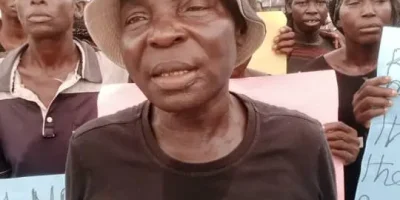The International Committee on Nigeria and the International Organisation for Peace Building and Social Justice have reported that Nigeria has transformed into “largely a failed state and regional epicentre for terrorism.”
The report, titled, “Nigeria’s Silent Slaughter,” contained that the combination of the “breakdown of the rule of law, spiraling violence, atrocities against targeted religious groups and innocent civilians and the apparent impunity of the perpetrators” led Nigeria into the failed state.
Nigeria it said, is currently experiencing genocide, adding that no fewer than 43,242 Nigerians have been killed by Boko Haram and Islamic State insurgents while 18,834 others lost their lives in the hands of killer Fulani herdsmen over a 20-year period.
It added that 34,233 other Nigerians met their deaths through extrajudicial killings by other actors, including the police, military and others.
The authors of the report added that their assertion found support in the 1948 Universal Declaration of Human Rights and the 1948 United Nations Convention on Genocide.
“There is strong evidence and a compelling legal argument that over the past decade or so, and increasingly under the current Fulani Muslim-dominated Nigerian government of Muhammadu Buhari, Nigeria is experiencing what could be seen as targeted religious genocide, or what, at the very least, is widespread and often coordinated religious persecution campaigns being conducted against Christians,” the report stated in its introduction overview signed by the Executive President of ICON, Stephen Enada, and Executive Director, PSI, Dr Richard Ikiebe.
In its foreword, the report published a November 24, 2019 letter by a member of the House of Lords, United Kingdom, Baroness Caroline Cox, calling on the international community to recognise the crisis in Nigeria as typical genocide, while accusing the Nigerian government of pampering killer Fulani herdsmen.
Cox wrote, “While the underlying causes of violence are complex, the asymmetry and escalation of attacks by well-armed Fulani militia upon predominantly Christian communities is stark and must be acknowledged.
“While the Nigerian administration has taken steps to counter Boko Haram insurgency, it has not demonstrated the same commitment to tackle the escalating violence perpetrated by Fulani militants.
“Finally, given the Nigerian government’s apparent complicity in the persecution of Christians, international aid should be curtailed until they protect and provide for their own citizens of any belief.”
Also in the foreword, a retired American congressman, Frank Wolf, urged the world to pay attention to Nigeria, noting that Boko Haram insurgents, in their decade-long Jihadist campaign, had killed over 27,000 civilians. A figure, he said, was more than the number killed by ISIS in Iraq and Syria combined.”
Wolf expressed the fear that Nigeria could implode with dire consequences for neighbouring nations and the world.
“An implosion would destabilise the surrounding countries and send millions of refugees into Europe and beyond.
“Nigeria, with a population of 195 million, is the largest country in Africa. I believe that so goes Nigeria, so goes western Africa,” Wolf said.
Similarly, the Bishop of the Anglican Diocese of Jos, Rev A.B. Kwashi, in the foreword, said the report captured the details of atrocities and abuse in Nigeria, describing it as timely.
Kwashi said, “Incidents of violence towards Christians, many of whom are farmers, by Islamic militants have been allowed to continue for too long.
“It is a common development and an everyday occurrence across Nigeria to kill Christians, meanwhile offenders are not being prosecuted and the leaders are unresponsive.”
A Senior Advocate of Nigeria, Prof Joash Amupitan, who wrote the report’s legal brief, among other recommendations, called for the setting up of a United Nations-backed tribunal in Nigeria to try perpetrators of crimes “as was the case in former Yugoslavia, Rwanda and Sierra Leone pursuant to the powers of the UN Security Council in Chapter V of the Charter of the UN.”
“The UN Security Council can be pressured by the major powers to refer the case of Nigeria, by virtue of its referral powers under Article 13 of the Rome Statute, to the ICC in respect of which the court could not otherwise exercise jurisdiction,” Amupitan added.








Comments